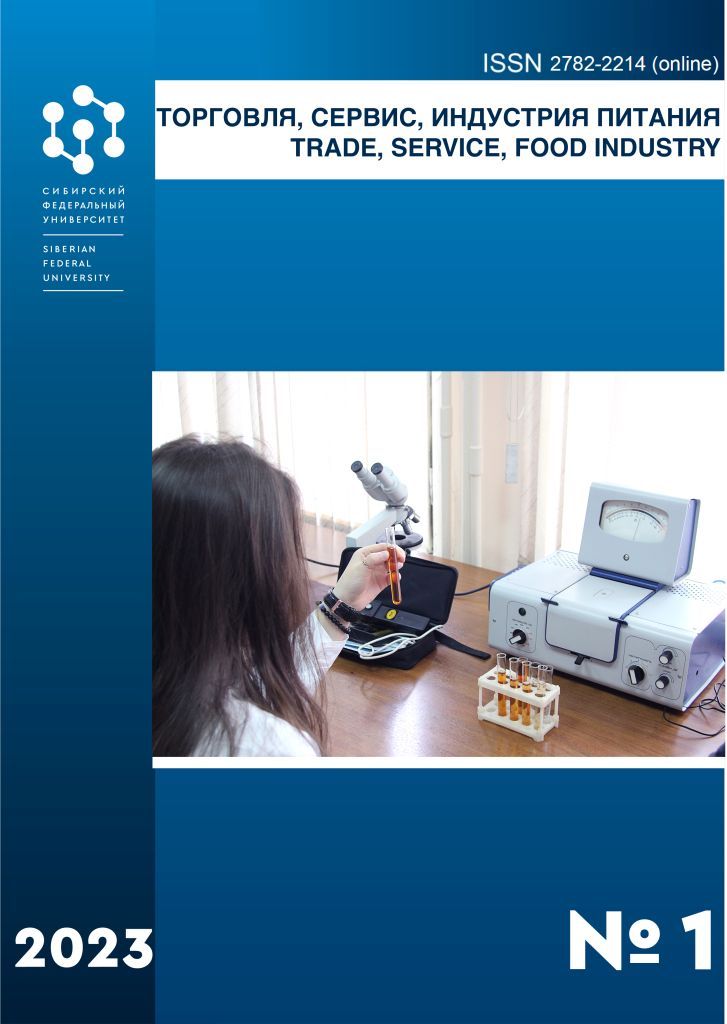Tomsk, Russian Federation
Kemerovo, Russian Federation
Tomsk, Russian Federation
VAK Russia 5.2.3
UDC 330.556
CSCSTI 06.00
The article is devoted to the analysis of the prerequisites, obstacles and forms of activation of the import substitution of digital services in the face of unprecedented sanctions pressure and technological restrictions. The information base of the study was the works of domestic and foreign economists in the field of import substitution, the production of digital services, state regulation of the economy, official statistics of the Russian and international levels, regulatory and policy documents. The typology of digital services is considered in relation to the prospects of their import substitution in Russia. The specific conditions of import dependence in the high-tech sector of Russian economy, associated with abandoning the Russian market by international companies, with the fragmentation of the creation of competitive digital services, with the monopolization of this segment of the Russian market, are characterized. The current regulations in the field of import substitution of digital services in the Russian economy, the used incentive measures of state support for domestic producers of software platforms and digital ecosystems are shown. Recommendations aimed at developing measures to support the import substitution of digital services in the Russian economy are presented. They are related to the extended tax incentives and a special tax regime for projects in cooperation with friendly countries, with the creation of a Center for Import Substitution Digital Technologies within the framework of a public-private partnership that integrates activities of digital technology platforms operating in Russia.
digital services, import substitution, public-private partnership, technology platforms
1. Decree of the President of the Russian Federation of May 9, 2017 No. 203 “On the strategy for the development of the information society in the Russian Federation for 2017-2030”.
2. Fedorkov, A. I. & Fedorkov, A. A. & Biryukov, O.A. (2016). The use of digital technologies in the development of industrial production in the context of international sanctions and import substitution. Petersburg Economic Journal, 4, 51-55.
3. Usova, N. V. (2022). Synergy of development of the system of digital services // Bulletin of the Tomsk State University. Economy, 57, 22-35.
4. Mau, V. (1998) Russian reforms through the prism of the Latin American experience: some results and trends. Scientific works of the Foundation “Institute for Economic Policy named after. E. T. Gaidar”, 3-25.
5. Kadochnikov, P. & Sinelnikov-Murylev, S. & Chetverikov, S. (2003). Import substitution in the Russian Federation in 1998-2002. Moscow, 95. [Electronic source] URL: https://www.iep.ru/files/text/working_papers/62.pdf.
6. Kukharskaya, N. A. (2007). State policy of regulating the development of export-oriented and import-substituting industries. Economics of Industry, 1 (36), 171-177.
7. Abaykhanov, Kh. M. & Teunaev, Z. D. (2007). Foreign investments and their impact on the competitiveness of the national economy. Space of Economics, 4-3, 7-10.
8. Makarov, A. N. (2012). On the interaction of small and large businesses in industrial innovative import substitution. Regional Economics: Theory and Practice, 18, 33-37.
9. Shirokova, I. (2011). From import substitution to innovation. Remedium, 8, 72-73.
10. Kuznetsova, V. A. (2010). Ways to stimulate import substitution in Russia. Transport business in Russia, 1, 90-92.
11. Shiyanova, A. A., Basha, N. V. & Lobanov, O. S. (2014) Import substitution in the Russian IT market. International Research Journal, 7-1 (26), 61-62.
12. Kheifets, B. A. (2016) Import substitution and competitiveness. Russia and the modern world, 2 (91), 6-21.
13. Kulagin, V. A., Grushevenko, D. A. & Kozina, E. O. (2015) Effective import substitution. Energy Policy, 1, 49-57.
14. Import substitution in Russia: yesterday and tomorrow. February 2023: report. [Electronic source] URL: https://www.hse.ru/mirror/pubs/share/814560067.pdf (Date of access: 10.02.2023).
15. Federal State Statistics Service. Section "Science, innovations and technologies". [Electronic source] URL: https://rosstat.gov.ru/statistics/science (Date of access 10.02.2023).
16. Say, J. B. (2000). Treatise on political economy. Moscow: Delo, 232.
17. Marx, K. & Engels, F. Soch. 2nd ed. T. 26. Part 1. pp. 413
18. Voracek, H. (2002). On the state of the "service marketing theory". Problems of the theory and practice of management, 1, 99-103.
19. Nesterenko, E. S. (2019). Digital service: concept, types, features. Theoretical Economics, 7 (55), 70-79.
20. Kozyrev, A. N. (2017). Digital Economy and Digitalization in Historical Retrospective. Moscow: CEMI RAS, 112.
21. Tsvetkov, V. Ya. & Semushkina, S. G. (2009). Electronic resources and electronic services // Modern problems of science and education, 6-1, 39-40.
22. Endaltsev, A. Ural Center for Security Systems. Import substitution in the information security market. July 13, 2022. [Electronic source] URL: https://habr.com/ru/articles/676664/ (Date of access: 02.02.2023).
23. Grigoriev, V. K., Biryukova, A. A. & Ovchinnikov, M. A. (2018). Infrastructural support for software import substitution. Open Education, 352-61.
24. Decree of the Government of the Russian Federation of May 3, 2019 No. 550 “On Approval of the Rules for Providing Subsidies from the Federal Budget to the Russian Fund for the Development of Information Technology to Support Projects for the Development and Implementation of Russian Solutions in the Field of Information Technology”. [Electronic source] URL: https://base.garant.ru/72240584/.
25. Decree of the Government of the Russian Federation of April 1, 2022 No. 714-r “On the allocation of budgetary appropriations from the reserve fund of the Government of the Russian Federation in 2022”. [Electronic source] URL: http://publication.pravo.gov.ru/Document/View/0001202204040010.
26. Lokhova, T. V. & Lagutin, Yu. V. (2018). Russia and China in the knowledge economy: initial positions and prospects for cooperation. Universities Bulletin. Volga region. Social Sciences, 2 (46), 190-200.
27. Ministry of Trade and Trade of Russia. Russian technological platforms. 2021. [Electronic source] URL: https://www.knitu.ru/servlet/contentblob?id=277203 (Date of access: 02.02.2023).








